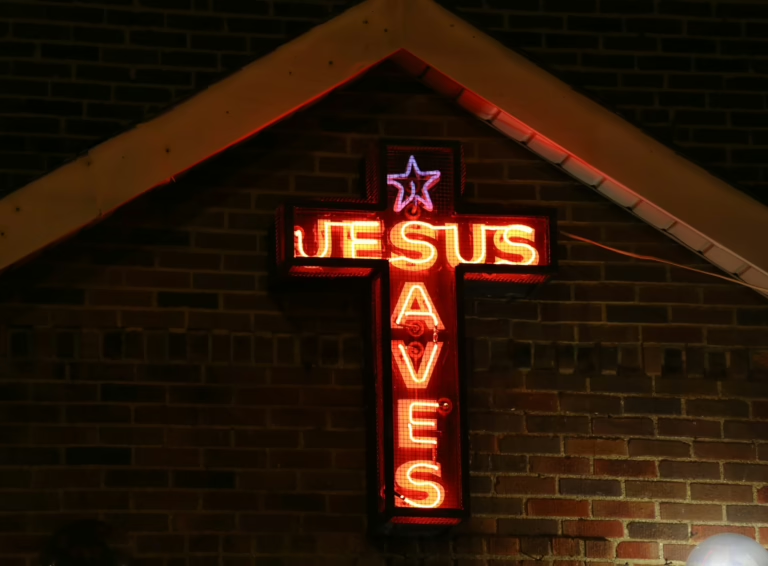In recent weeks, numerous Evangelical Christians have been posting videos on social media platforms, sharing urgent warnings and guidance in anticipation of a possible rapture event, a prophetic moment some anticipate could take place around September 23 or 24 this year.
While this surge in content appears to be sparked by a prediction from a South African pastor on YouTube, the concept of the rapture has historically been connected to significant global occurrences, including the ongoing conflict involving Israel and Palestinians in Gaza.
Recommended Stories
But what exactly is the rapture, and why are some Evangelical believers convinced that the world’s end might be imminent?
Here’s a detailed overview:
Understanding the Rapture
It’s important to note that belief in the rapture is not universal among Christians.
This is perhaps unsurprising, given that the term “rapture” itself does not explicitly appear in the Bible, as noted by biblical scholar Bart Ehrman, author of Armageddon: What the Bible Really Says about the End.
For those who embrace this doctrine, the rapture is viewed as a prophetic event occurring during the end times, preceding the second coming of Jesus Christ.
Adherents believe that at the onset of the rapture, faithful Christians will be suddenly taken up into the sky to “meet the Lord in the air.”
Meanwhile, those who do not believe will remain on Earth, facing a period marked by severe hardships such as natural disasters and widespread calamities.
Rapture Discussions Trending on TikTok
One viral TikTok video from the account christwillreturn, which has over 848,000 followers, features a woman tearfully urging her close friend to repent immediately, fearing she might be “left behind.”
She recounts a vivid dream where she desperately tried to warn others that “Jesus is coming,” but felt ignored and even mocked.
“Everyone needs to repent now. He’s coming,” she insists in the video.
Another clip from Christianquotes89 shows two men advising non-believers on what to expect if the rapture occurs.
One explains, “You might be wondering where the missing people have gone and what’s happening. It’s natural to feel scared and seek answers.”
He continues, “Those of us who have accepted Jesus as our Savior have been taken to heaven, to be with Him. We will return with Him in about seven years.”
He warns that those left behind will endure a “difficult time, worse than any period in human history.”
Prevalence of Rapture Beliefs
The viral videos reflect a spectrum of reactions, from genuine concern to skepticism and even ridicule.
In the United States, where many of these videos originate, belief in end-times scenarios is relatively common.
Research from the Pew Research Center in 2022 found that nearly half of American Christians (47%) believe that “we are living in the end times.”
However, a majority of Americans (58%) overall do not subscribe to the idea that humanity is nearing its final days.
Pew’s study also revealed that those who believe in the end times tend to view global issues differently; for example, only 51% of them consider climate change a “very serious” problem, compared to 62% among those who do not hold such beliefs.
Is the Rapture Imminent?
South African pastor Joshua Mhlakela gained attention with a YouTube video posted three months ago, predicting the rapture might occur on September 23 or 24 this year.
By September 22, the video had amassed over 560,000 views.
Still, predictions about the rapture’s timing have been circulating since at least the 19th century, with apocalyptic prophecies dating back even further.
Over the years, numerous books and films have popularized rapture themes, reaching millions worldwide.
One notable example is Hal Lindsey’s The Late Great Planet Earth, the bestselling non-fiction book of the 1970s, which linked biblical prophecy to contemporary events in Israel and Palestine.
Lindsey, who passed away last year at 95, argued that Jesus’s return would follow a climactic war called “Armageddon,” triggered by an invasion of the “new state of Israel.”
He suggested this would happen when humanity was on the verge of destruction.
More recently, the Left Behind book series has brought the concept of non-believers being “left behind” into mainstream culture, with several titles topping The New York Times bestseller list and a film adaptation starring Nicolas Cage.
Josie McSkimming, a clinical social worker and author from Sydney, Australia, explains that end-times beliefs can become deeply rooted, especially for those raised in churches emphasizing these teachings.
She notes that current events, such as the conflict in Gaza, can intensify these feelings.
“I work with clients who have left those churches but still experience anxiety, hypervigilance, and fear that the apocalypse is near,” McSkimming says.
“Even if they no longer believe in hell or Armageddon, they are distressed because their family and friends continue to talk about it,” she told Al Jazeera.

















